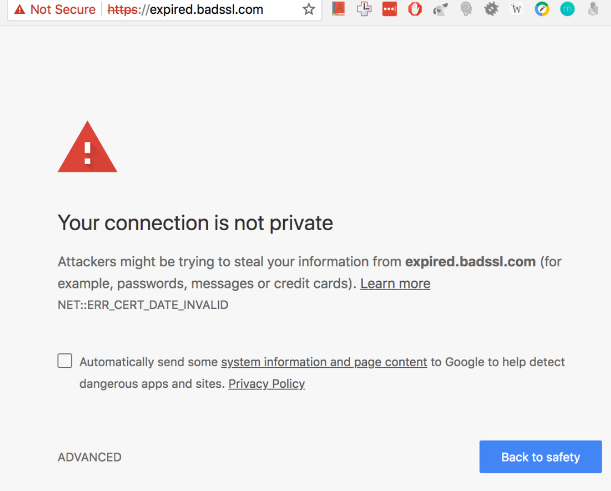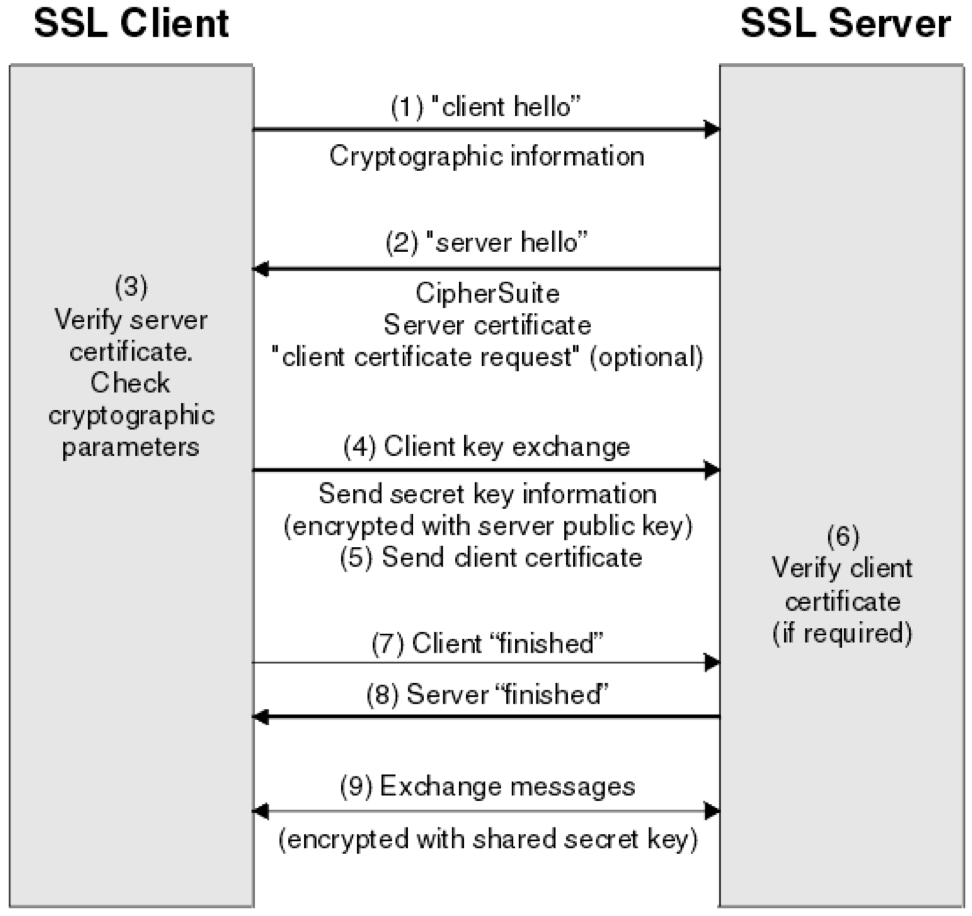1) What is SSL Certificate?
SSL stands for “Secure Sockets Layer.” It’s a security protocol used for the secure transfer of information from computers to the internet. Since it secures our private information, Therefore, it is used on worldwide computer systems. SSL has a significant job to save our information on sites.
It guarantees the security of the private data of the client. The SSL protocol is a broadly utilized cryptographic protocol that can ensure correspondence between two or more devices on the internet. Frequently, SSL is utilized to secure the information communicated between a web server and a client (web browser).
The protection takes authentication for each participant and encryption for all messages sent back and forth. On account of these securities, outsiders can’t listen in on the correspondence or adjust it in any important manner.
2) Significance and Importance of SSL
With such significant advancement and evolution of the internet, websites need excellent stability in terms of security and protection. It is essential to protect websites from cybercriminals and hackers.
As internet users, we need to be more protective and careful using the internet. For example, suppose you upload some data to the internet; the data is shared from one computer to another in order to reach the destination server. If SSL is not utilized on any website, hackers can simply gain access to your system. They can obtain all of your vital data or information, such as user id, password, ATM cards, and so on, through hacking.
To protect and secure sensitive and private information, you need an “SSL Certificate.” SSL certificate is an electronic password used to create or establish an online entity’s credentials when doing business on the internet. It includes the certificate holder’s name, serial number, and expiration date, as well as a digital signature from a certificate-issuing authority and a copy of the certificate holder’s public key.
This certificate is very significant and the backbone of website security. This certificate is essential for online business organizations to protect them from fraudulent identity and criminal surveillance. We need to back up the website with an SSL certificate for protection and better internet use.
Here are some important factors about the importance and significance of the SSL certificate.
- SECURING INFORMATION:
This certification increases the protection and safety of websites. It will help protect and secure sensitive data. Things like ID numbers, credit card numbers, agreements, documents, and passwords must be protected and secured. SSL is proved to be an excellent guard and shield against all hackers and fraudsters.
- AUTHENTICATION:
SSL offers the best authentication to its user. If a person is sending some data or information to another user, how would the person know that the information is going to the right person as it can be stolen mid-way? Here comes the SSL that tells the person that the information is going to the right source and is not being stolen mid-way. SSL authentication makes it far more difficult for unauthorized organizations to get access to critical data.
- TRUST FOR YOUR CUSTOMERS:
SSL maintains and generates trust between you and your customers since people have lost thousands of dollars by trading on fake websites. With an SSL certificate, your website will be displayed a security and safety padlock in the address bar means “HTTPS,” i.e., Hypertext Transfer Protocol Secure which is an extension of the Hypertext Transfer Protocol and hence increases the trust of your customers towards your website for trading and they will not be afraid of entering their payment credentials on your site.
- SEARCH ENGINE RANKING BENEFITS:
SSL will help your site in improving its SEO. In 2014, Google changed the algorithm to favor HTTPS-enabled websites. Google favours websites that have SSL certificate installed.
- IT IS MANDATORY:
Google has decided to flag websites that dont have SSL certificates. So anyone who fails to act as per the recommendations will be punished from all popular web browsers used globally. Google chrome and firefox will display a warning message of “Not secure” in the URL bar that can affect your site’s credibility.

- ENHANCE SPEED OF YOUR SITE:
Sites with SSL have better speed and low load time than sites that dont have SSL certificates. Websites having https-enabled mostly have a higher ranking in search engines. You can test your site as the HTTPS-enabled site, which is faster and quicker than the HTTP-enabled site.
- SSL HELPS IN COMPLYING WITH PCI/DSS REQUIREMENTS:
All websites that collect online credit card payments must comply with the PCI/DSS standard, including the PCI compliant hosting and SSL certificate; otherwise, they will be banned by accepting online payments or pay monthly fines.
3) How Does SSL Works?
SSL (Secure Sockets Layer) enhances a website’s security by providing two important features: encryption and authentication.
- ENCRYPTION:
It means that data sent between the web browser and the webserver is unreadable by others. When a customer accesses your site using an SSL connection (URLs begin with https://), the webserver and web browser exchange encrypted information.
- AUTHENTICATION:
It means that website visitors can build up their trust in your site. Authentication helps prove your identity to others that you are who you claim to be.
These are the essential principles to understand how SSL works:

- Client Hello:
Secure Communications starts with an SSL handshake. This informs the server that the client wants to establish a secure connection. The client sends a Hello message to the server.
- Server Hello:
The server, in return for the hello from the client, responds with a server hello. The webserver will send its public key and SSL certificate to the client’s web browser and keep its private key for decryption later on.
- The client validates the certificate:
After receiving the certificate from the web server, the client’s browser validates the certificate and checks whether it is valid.
- Client generates and encrypts the session key:
The client’s browser then generates a secret key known as a “Session key” and encrypts it with the webserver’s public key. The Encrypted message (key) is then sent to the server. Only the webserver can decrypt the message to get the Session key.
- Server Decrypt’s the key:
After getting the encrypted session key from the client’s browser, the webserver uses its private key to decrypt it and hence completes the process to secure and protect communication between the bowser and the webserver.
Conclusion:
We hope now you must have an understanding of what is an SSL and how does it work. SSL certificates are now more important than ever for your websites, so don’t keep any of your websites without an SSL certificate.

